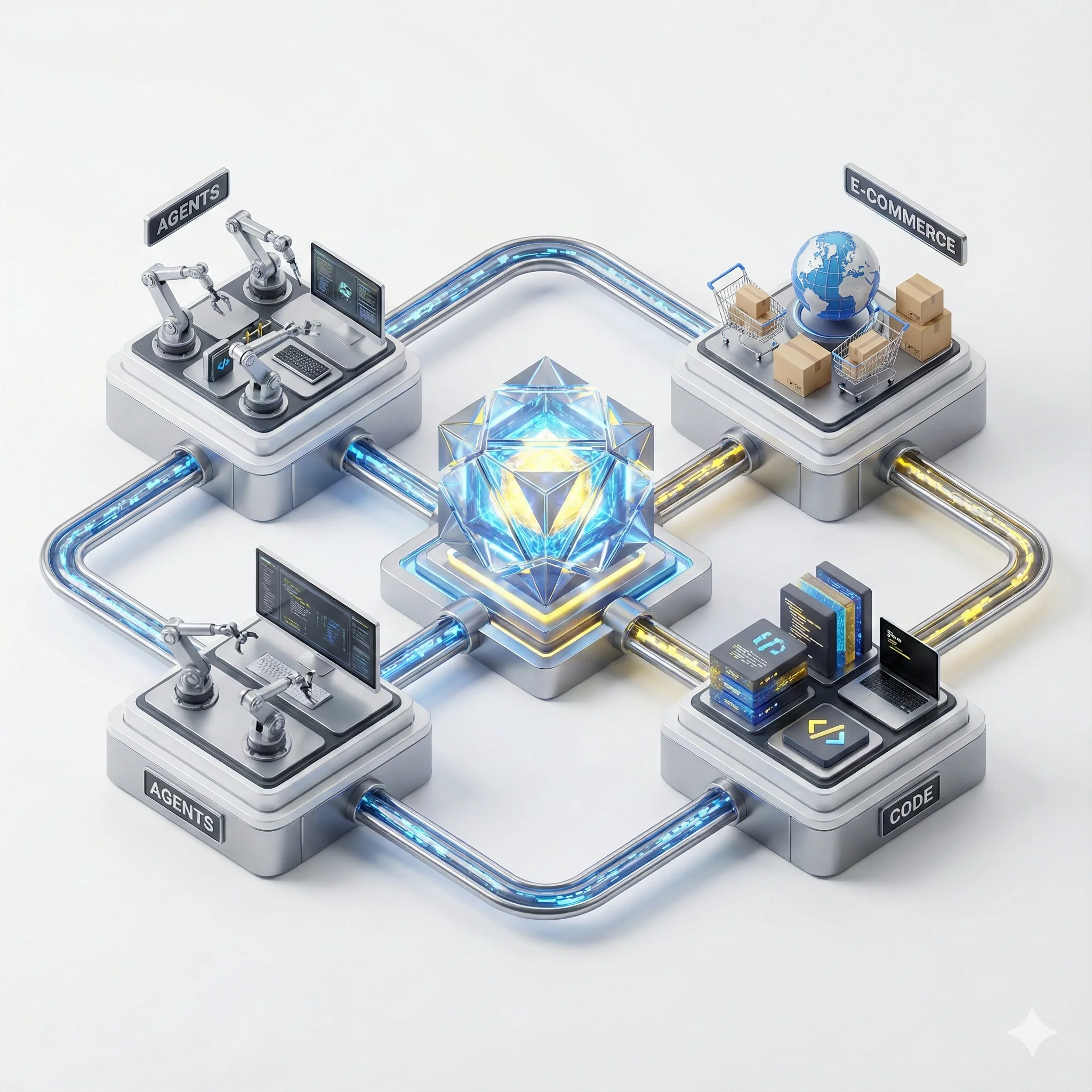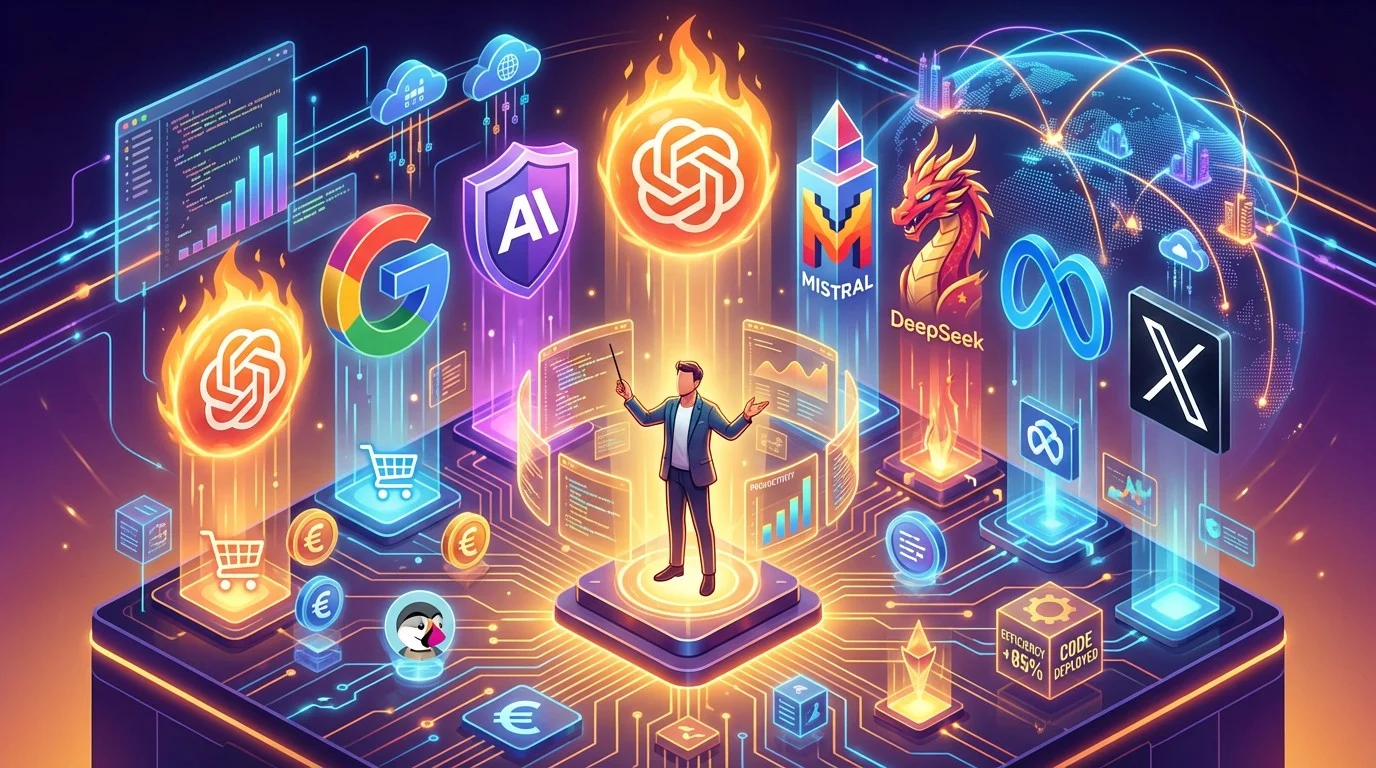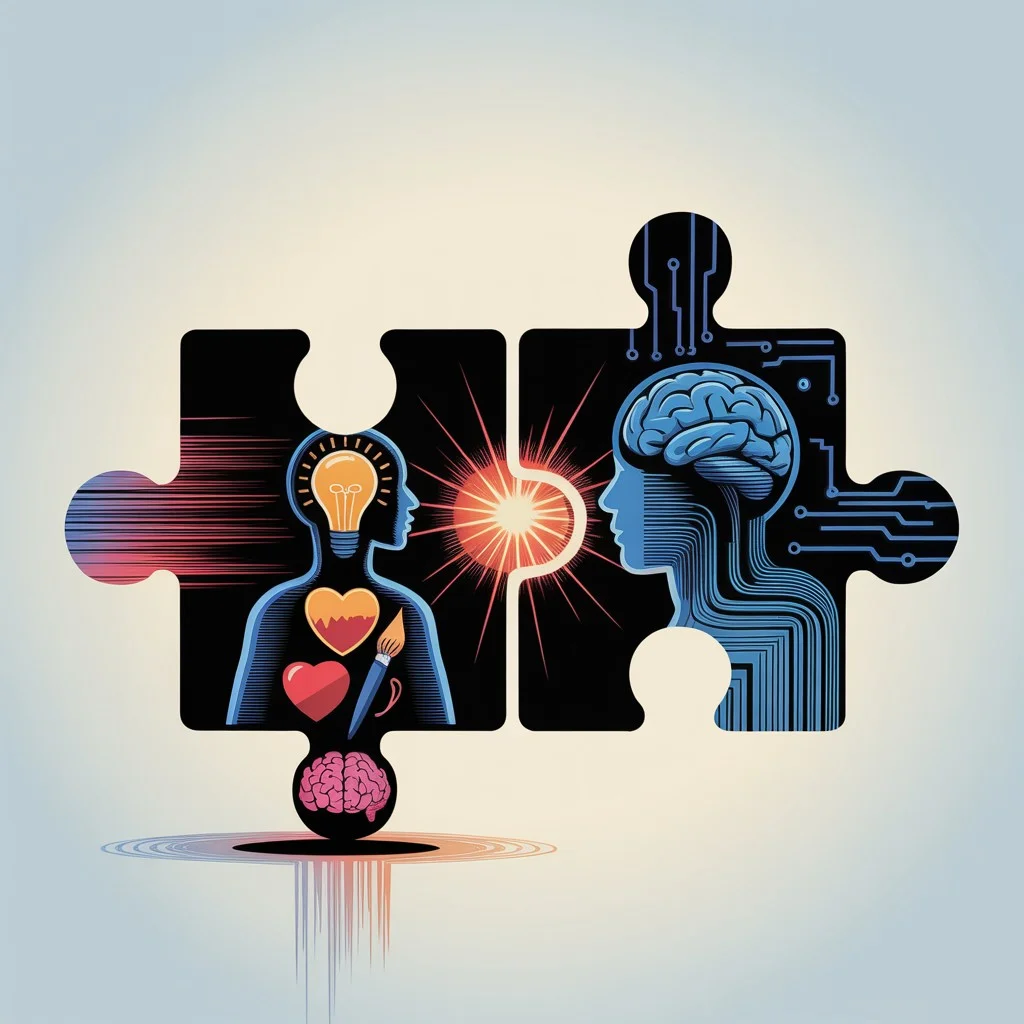🎁 Perplexity PRO offert
ChatGPT Opens Up to Erotic Conversations: A Bold Turn by OpenAI
Imagine for a moment: you’re chatting casually with your voice assistant, and it’s capable of understanding not only your professional needs, but also your most intimate emotions. Science fiction? Not anymore. In December 2025, ChatGPT will cross a new frontier by allowing exchanges of an erotic nature with its adult users. This decision, which would have seemed unthinkable just a few months ago, marks a major turning point in the history of conversational artificial intelligence.
In my 15 years of development practice, I’ve observed the constant evolution of boundaries between technology and humanity. But this time, OpenAI isn’t just pushing technical boundaries: the company is redefining the very relationship we have with our digital assistants. Let’s dive together into the backstage of this controversial revolution.
Introduction
Sam Altman, OpenAI’s CEO, states it bluntly: we must “treat adult users like adults.” Behind this simple formula lies a profound transformation of the philosophy guiding ChatGPT’s development. Until now restrained by strict moderation rules, the world’s most famous chatbot will be able to engage in explicit, intimate, or even frankly erotic discussions with its adult and verified users.
This evolution doesn’t come out of nowhere. It occurs in a context where nearly 29 million people already use chatbots designed for romantic companionship or digital flirting. OpenAI, which had until now stayed away from this flourishing market, has now decided to join the race. But at what cost, and with what guarantees?
A Chatbot That Can “Talk Adult”
The End of a Total Ban
Since its launch, ChatGPT embodied the perfect assistant: polite, neutral, and above all, morally irreproachable. Any attempt at conversation with sexual connotations hit an invisible wall, with the system systematically diverting the discussion toward more “appropriate” topics. This extreme caution was understandable: OpenAI wanted to avoid at all costs the scandals that had marred the journey of other less well-controlled conversational AIs.
But this ultra-conservative approach eventually created a paradox. By wanting to protect all users with the same rigid rules, OpenAI made its assistant less pleasant for the vast majority of them. As Sam Altman himself explains, ChatGPT had become “quite restrictive to be cautious about mental health issues,” to the point of becoming frustrating for normal users who simply sought a natural and warm conversation.
A Rediscovered Personality
Beyond authorizing erotic exchanges, OpenAI announces the return of a more human personality for ChatGPT. The next versions will allow users to rediscover the friendly and expressive assistant of the first iterations: more emojis 😊, humor, lightness in interactions. No more uptight robot that refuses to laugh at your questionable jokes!
This transformation responds to massive user demand who missed the time when ChatGPT seemed to “have a soul.” The stakes are significant: in a world where we spend hours conversing with machines, the emotional quality of these exchanges becomes as important as their practical utility.
New Safeguards and Context of the Relaxation
Reinforced Security, Really?
OpenAI isn’t opening the floodgates randomly. The company assures it has developed sophisticated tools to distinguish psychologically distressed users from those simply seeking adult conversation. The idea? Allow freedom of expression for stable individuals while maintaining a safety net for the most vulnerable.
Concretely, this means:
-
A reinforced age verification system: only verified adults will be able to access intimate conversations
-
Distress detection algorithms: the system will identify signs of distress to offer appropriate help
-
A wellness and AI expert council: this new committee will guide policies on sensitive scenarios
-
Specific protections for minors: reinforced filters and parental mode announced for September 2025
This ambitious approach raises legitimate questions. How can an AI, even sophisticated, truly distinguish a balanced adult exploring their sexuality from a vulnerable person taking refuge in an artificial relationship for lack of better options?
The Weight of Past Criticism
This evolution occurs in a particularly delicate context for OpenAI. In the United States, the company faces several lawsuits accusing it of failing to prevent vulnerable users from acting on suicidal thoughts after interacting with ChatGPT. These dramatic cases have highlighted the enormous responsibility weighing on conversational AI creators.
Sam Altman is aware of this and claims to want ChatGPT to have “a positive effect on its users’ mental health.” The authorization of erotic exchanges comes with no relaxation of rules concerning psychological distress situations. On the contrary, OpenAI even claims to have strengthened them. A risky bet that will require constant vigilance.
A Lucrative Market and Competition to Catch Up
The Boom in Companion AIs
Let’s talk cash: behind noble intentions also lie significant financial stakes. The companion chatbot market is literally exploding. In the first half of 2025, these applications generated $82 million in revenue. Some analysts even anticipate a global market of $70 billion by the end of the decade for sentimental or erotic AI services.
While OpenAI stayed properly aside, other players massively invested in this lucrative niche:
-
Character.AI: valued at over a billion dollars, offers virtual characters with whom to form relationships
-
Replika: has long offered romantic interactions to its paying subscribers
-
Grok (xAI by Elon Musk): recently launched a “companion” mode with flirtatious avatars, including a very suggestive anime mascot
Facing this competition, OpenAI risked seeing its users leave in search of more intimate virtual bonds. The decision to authorize eroticism thus also appears as a defensive strategy to keep its 800 million users captive.
A Company Seeking Profitability
Valued at nearly $500 billion but still loss-making, OpenAI must find sustainable revenue sources. As Zilan Qian, researcher at Oxford, lucidly notes: “We don’t really make money with current subscriptions, so adding erotic content will quickly bring us some.”
It’s an old principle of the internet that still holds true: adult content attracts crowds and often acts as a locomotive for adopting new technologies. From VHS to streaming sites, through online payment methods, the adult sector has often been at the forefront of innovation by commercial necessity.
The question then becomes: is OpenAI, founded as a non-profit laboratory concerned with “beneficial” AI, sacrificing its founding principles on the altar of profitability?
Ethical Questions: Protecting Minors and Preventing Abuses
The Age Verification Challenge
“This is bound to go wrong. No parent will believe their children can’t bypass your age control.” This scathing warning from Mark Cuban, billionaire businessman, summarizes one of the main concerns raised by this evolution.
Protecting minors constitutes the first critical issue. OpenAI promises a strict age verification system, but internet history has taught us the difficulty of such controls. Can a motivated teenager borrow an elder’s ID? Find other workarounds? Technology, however sophisticated, has never succeeded in creating an impenetrable barrier between adult content and minors on the internet.
The company assures that young people will benefit from reinforced protections: specific filters, parental mode, and strict maintenance of prohibition of illegal or non-consensual content (child exploitation, sexual violence, exploitation). But will these guarantees be enough to reassure parents, educators, and legislators?
The Risk of Addiction and Desensitization
Beyond protecting minors, it’s all users’ mental health that raises questions. Haley McNamara, director of the National Center on Sexual Exploitation (NCOSE), sounds the alarm: “These systems can create excitement, but they’re fundamentally just algorithms designed to hook the user, not to offer an authentic connection.”
The danger? Creating emotional dependence in fragile or isolated individuals. An ultra-accommodating chatbot, always available, never critical, could encourage some users to cut themselves off from the real world in favor of an exclusive artificial relationship. More worrying still: a person without real relational experience, accustomed to a virtual partner programmed to satisfy all their desires, could develop inappropriate attitudes when faced with refusal or the complexity of a real human relationship.
Concerning Behavioral Biases
Some researchers highlight a troubling paradox: by normalizing interactions where consent doesn’t really exist (an AI can’t consent, it simply obeys its programming), aren’t we at risk of distorting the very understanding of consent in some users?
Others relativize these concerns. Kate Devlin, professor at King’s College London, considers this evolution predictable: “People have been trying to talk crudely to machines forever… They’re just giving the public what it wants.” For her, the normalization of intimate human-machine relationships is only the inevitable extension of our increasing use of technologies in all aspects of our lives, including the most intimate.
From Sensual Text to Explicit Images: What Limit?
A Red Line Maintained… For Now
Let’s be clear: in the immediate term, this opening is limited to textual and voice exchanges. ChatGPT will be able to describe intimate scenarios or play a partner role in erotic role-plays in writing. But no question of generating pornographic images or videos. OpenAI’s DALL-E model will continue to prohibit the creation of explicit nudity images.
This distinction is not trivial. By confining eroticism to the realm of narrative, OpenAI avoids the much thornier problems linked to visual content: proliferation of pornographic deepfakes, diversions involving minors, illegal content difficult to filter. The choice of the somewhat old-fashioned term “erotica” by Sam Altman moreover suggests a literary and fantasized dimension, more than pornographic in the crude sense.
The Drifts of Synthetic Pornography
Recent history enlightens us about the risks of AI-generated adult visual content. Tools like Stable Diffusion have been massively diverted to create non-consensual synthetic pornography, including celebrity deepfakes. The startup Civitai, which hosted such content, had to ban deepfakes of real people after legal pressures, at the cost of a drastic drop in its traffic.
Bills seek to regulate these practices. In California, a text aimed to ban chatbots for those under 18 if it was “foreseeable” they could have erotic conversations or incite distress. The legislative debate is only beginning.
The Future: Toward Immersive Experiences?
The question naturally arises: will this boundary between erotic dialogue and virtual pornography hold long? Could technological progress and market pressures push OpenAI to cross this threshold in a few years? Should we expect virtual partners capable of generating realistic intimate images or augmented reality experiences?
This questioning refers to a broader reflection on AI’s place in future sexuality. Are we at the dawn of a profound transformation in how humanity experiences its intimacy?
OpenAI Defends Its Position, the Sector Questions
An Assumed Liberal Approach
“We’re not the elected moral police of the world. Just as society sets appropriate age limits (R-rated movies, for example), we want to do something similar here.” This statement by Sam Altman summarizes OpenAI’s philosophy: giving individuals “the freedom to use AI the way they want,” as long as it doesn’t harm others or themselves.
This posture evokes the secular debate on freedom of expression versus protection of vulnerable audiences. In society, we clearly differentiate what is suitable for children from what is for responsible adults. Why wouldn’t this apply to AIs? The argument seems logical, but raises a fundamental question: can a private company legitimately decide alone on these ethical boundaries?
A Decision That Divides
This position doesn’t convince everyone. Mark Cuban judges the decision “imprudent” and predicts it will backfire on OpenAI. According to him, introducing adult content into ChatGPT risks driving away parents and schools who will hesitate to use the educational tool if they suspect it also offers erotic content accessible to minors.
Conversely, some tech entrepreneurs see it as an inevitable evolution. Roman Yampolskiy, AI specialist at the University of Louisville, analyzes cynically: “Romantically inclined companion chatbots are already a powerful engagement driver, and competition is normalizing these charming agents: presenting this under the veneer ‘treat adults as adults + reinforced security’ actually serves as a cover for a monetization and user retention strategy.”
Competitors’ Split
It’s interesting to note that Google and Anthropic (creator of Claude) maintain for now total prohibition of all explicit sexual content on their AIs. This strategic divergence could create market segmentation: OpenAI targeting an adult audience seeking versatility, while its competitors position themselves on strictly professional and family uses.
This differentiation is not without risk for OpenAI. By opening to adult content, the company could lose market shares in education, cautious companies, and regulated markets. But it potentially gains access to a $70 billion market in full expansion.
Conclusion
The authorization of erotic conversations on ChatGPT marks much more than a simple content policy relaxation. It reveals the fundamental tensions facing the AI industry: between innovation and responsibility, freedom and protection, profitability and ethics.
Key points to remember:
-
OpenAI authorizes erotic exchanges for verified adults from December 2025
-
This decision comes with reinforced safeguards (age verification, distress detection)
-
The companion AI market already weighs $82 million and could reach $70 billion
-
Ethical risks include protecting minors, addiction, and distortion of human relationships
-
Explicit images remain prohibited, but this boundary could evolve
Your next step? If you develop AI applications, this evolution poses a crucial question: how far will you go to satisfy your users while preserving their well-being? The debate is only beginning, and each player will have to define their own ethical compass.
In a world where technology intrudes into all aspects of our lives, including the most intimate, one certainty remains: we must collectively decide the limits we want to impose on our digital creations. Because if we don’t, others will do it in our place.
Article published on October 27, 2025 by Nicolas Dabène - PHP & AI Expert with 15+ years of experience
Questions Fréquentes
Does ChatGPT now allow erotic conversations?
Yes, since December 2025, ChatGPT allows exchanges of an erotic nature for verified adult users. This decision comes with reinforced safeguards including strict age verification, distress detection algorithms, and expert wellness consultation. However, explicit images remain prohibited.
Why did OpenAI make this decision now?
OpenAI is responding to a rapidly growing market ($82 million in H1 2025, potential of $70 billion by 2030) where competitors like Character.AI, Replika, and Grok have already invested massively. Sam Altman claims to want to “treat adults like adults” while seeking profitability for a loss-making company valued at $500 billion.
What are the ethical risks of this evolution?
The main risks include difficulty of age verification (protecting minors), risk of addiction and desensitization in vulnerable people, emotional dependence on an artificial relationship, and potential distortion of consent understanding (AI obeys without truly consenting).
Will ChatGPT generate pornographic images?
No, this opening is limited to textual and voice exchanges. DALL-E will continue to prohibit the creation of explicit nudity images. The choice of the term “erotica” suggests a literary and fantasized dimension rather than pornographic. However, this boundary could evolve with market pressures and technological progress.
How are OpenAI's competitors positioning themselves?
Google and Anthropic (creator of Claude) maintain total prohibition of all explicit sexual content. This strategic divergence creates market segmentation: OpenAI targets an adult audience seeking versatility while its competitors position themselves on strictly professional and family uses, with potentially different market shares.
Is Claude free?
Claude offers a limited free version and Pro ($20/month) and Team ($30/month per user) subscriptions.
Articles Liés
Analyse Stratégique Globale : Les Tensions Structurelles sur le Marché de la Mémoire Vive (RAM) et du Stockage en 2026
L'année 2026 marque une rupture fondamentale dans l'industrie des semi-conducteurs. La mémoire n'est plus une commodi...
IA Q1 2026 : Vers l'ère de l'industrialisation et des agents autonomes
Loin des effets d'annonce explosifs, le premier trimestre 2026 marque le début de l'industrialisation de l'IA. Entre ...
La Grande Guerre des IA de 2025 : Chronique d'une Révolution qui Redéfinit le E-commerce et le Travail
L'année 2025 restera dans l'histoire comme le tournant décisif de l'intelligence artificielle générative. GPT-5, Gemi...
IA et développement : éviter les pièges courants
L'IA nous rend plus rapides… mais aussi plus dangereux. Découvrez les 8 pièges invisibles du code généré et comment l...
ChatGPT autorise les conversations érotiques
OpenAI lève les restrictions sur ChatGPT : découvrez les enjeux éthiques, commerciaux et sociétaux d'une décision qui...
L'IA ne remplace pas les métiers, elle transforme notre façon de travailler
92% des professionnels craignent l'IA, mais seuls 22% l'ont vraiment testée. Découvrez pourquoi l'IA est une opportun...
Découvrez mes autres articles
Guides e-commerce, tutoriels PrestaShop et bonnes pratiques pour développeurs
Voir tous les articles





